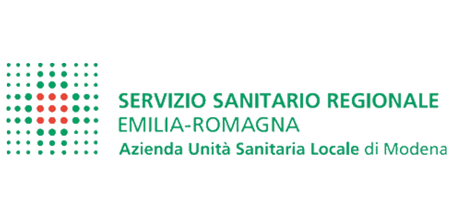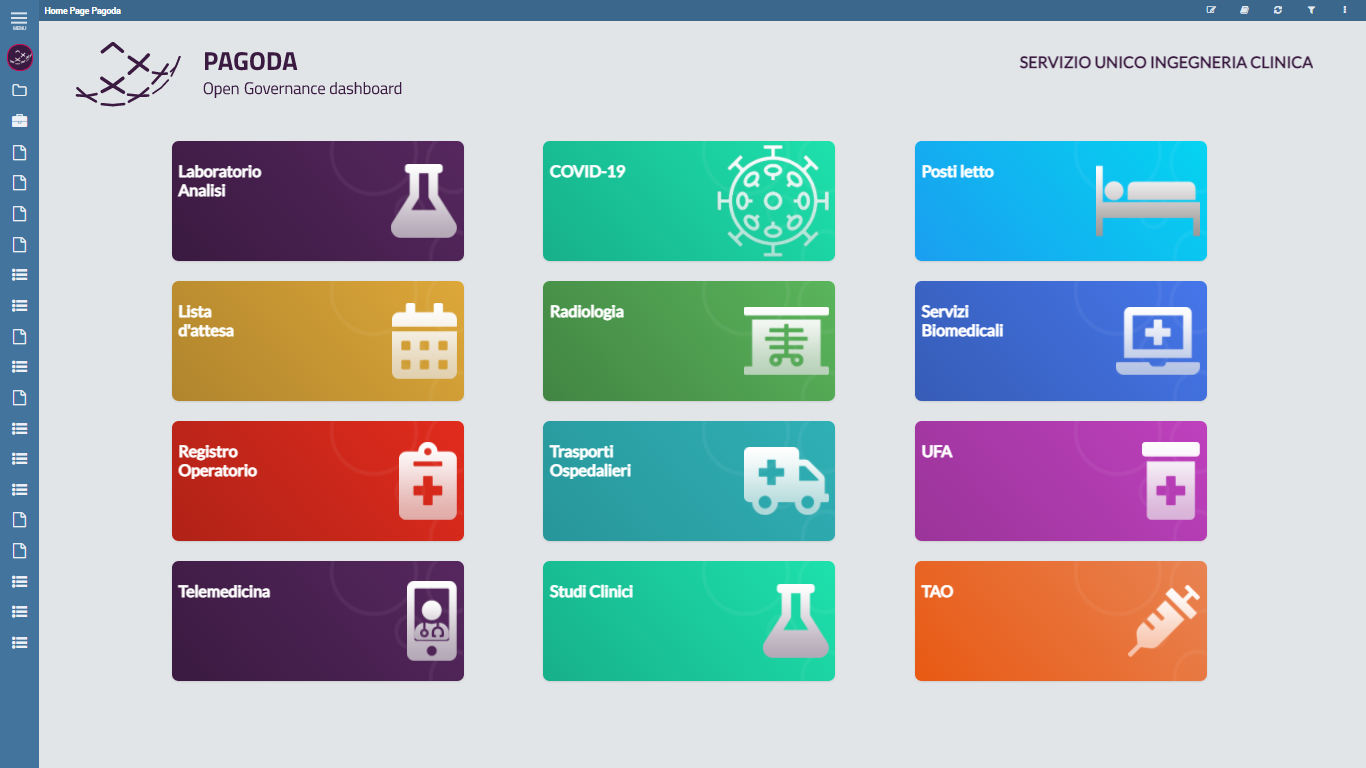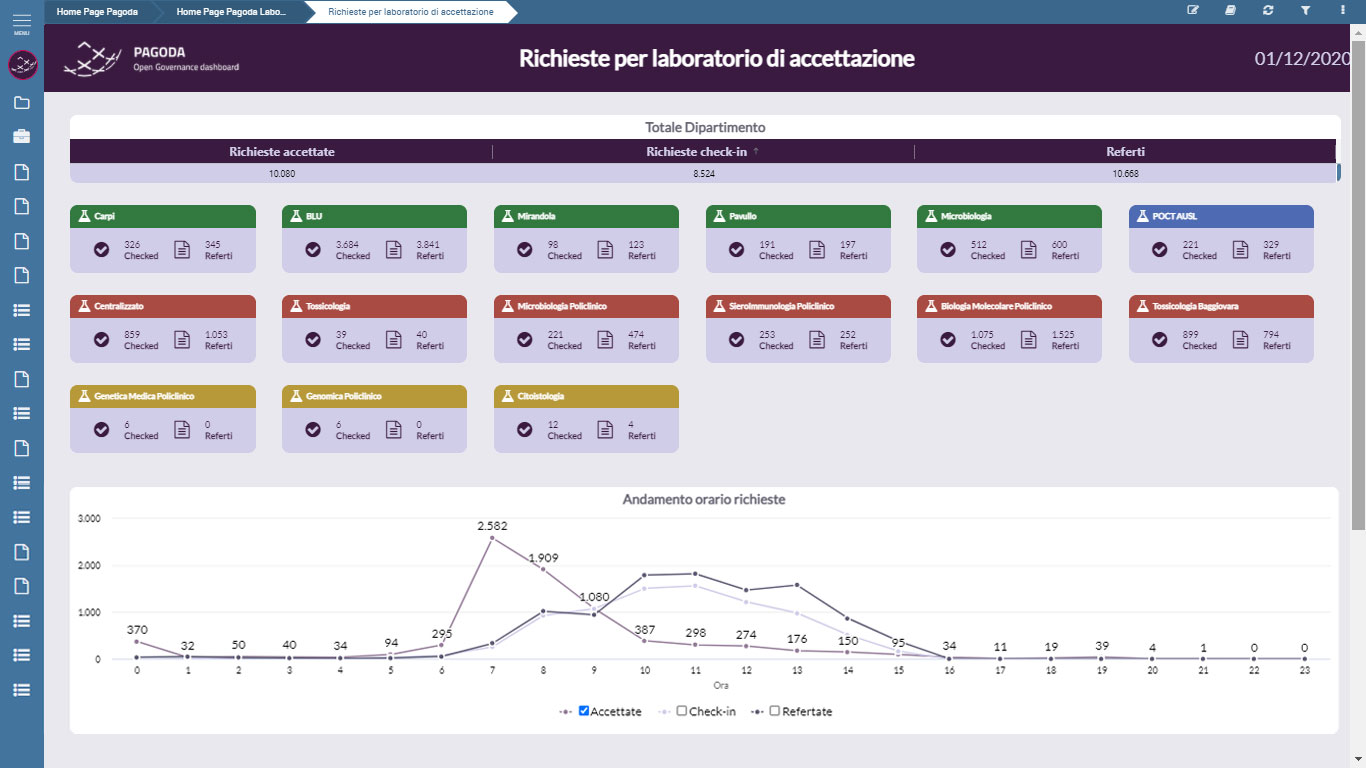Business Intelligence and Big Data for Healthcare
MODULES AND PLUGINS
PROJECT
PAGODA is the Engineering Ingegneria Informatica Spa solution that allows to collect and integrate data generated by the various areas and business activities, facilitating their exploration and transformation into information essential for the control and optimization of the diagnosis and treatment processes.
Pagoda embeds KNOWAGE to provide Business Intelligence and Big Data for Healthcare market.
CUSTOMER

Modena Local Public Health Authority was born in 1994 from the merge of six Local Health Units. The territory on which the Modena Local Public Health Unit carries out its institutional activities has an area of 2690 square kilometers, divided into 47 Municipalities. The provincial population has reached 703,203 units (as of 1 January 2018). The following are part of the social-health network: 6 hospitals, 130 residential facilities, 30 family counseling centers, 37 primary care centers, 176 pharmacies, 28 accredited private outpatient facilities, 11 health centers, and 23 non-stop assistance centers.
THE NEED
For its clinical analysis laboratory, the Public Health Authority of Modena needed a Business Intelligence tool able to fulfill the following requirements: ease of use, management of big data, real-time analysis, deep dive reporting and info-delivery capabilities on different aggregation levels.
THE PROJECT
Pagoda enables the collection, integration and processing of data coming from one or more clinical laboratories. Data are collected and analysed to provide valuable information to monitor, check and optimize the overall process workflow.
Since 2005, when Modena Local Publich Health Autorithy first adopt PAGODA, the system managed more than 2 million requests, 4 million samples, 14million performances, 158 million analysis and 476 million results for an amount of 5 billions of data.
Pagoda offers both graphical and tabular views on data at different levels of detail, ranging from macro-areas such as health care departments to single analytical activities.
It offers different types of queries and is able to compare values over different intervals of time.
It allows authorized users to view and build their own dashboards, reports and key performance indicators, which can also be exported using the most common file formats.
PAGODA supports healthcare organizations and stakeholders in their duty and activities:
– for healthcare staff of each laboratory displaying in RT over a monitor the working performances as a report 24h per day
– for labs managers, giving access to certified data in real time, allowing them to monitor performances and take actions, estimating on the one hand the quality of the services provided, and on the other hand the savings in consumables.
IN DETAIL
Pagoda allows laboratory managers to easily and autonomously monitor historical and real-time data regarding the following domains:
VOLUMES
Amount of collected samples and distribution of incoming requests based on time, types of tests and involved healthcare units. This aims at assessing the laboratory efficiency by identifying any bottleneck, and optimize single-laboratory and multi-laboratory manufacturing and distribution processes.
ACTIVITIES
Monitoring of the entire workflow by tracing samples and detect outliers (e.g. non compliances of samples) or critical situations (e.g. samples turnaround time). This aims at analysing workflows and their load distribution among the involved laboratories over time.
CONSUMABLES
Measuring the actual usage of consumables versus prices declared by providers when applying for calls, as well as the traceability of the consumables path along clinical activity, up to the patient’s identity. This aims at evaluating the actual production costs of clinical activity.
SUITABILITY
Predictive analysis of how applying a rule would impact a specific clinical context and monitoring of effects upon actual rule enforcement. This aims at supporting laboratory managers in decision making, by evaluating and balancing both the quality of healthcare service provisioning and the usage of consumables.
QUALITY
Extraction of data and key performance indicators, e.g. turnaround time, delay on agreed SLAs, extraction of non-compliant data.
EPIDEMIOLOGY
Self-service design of statistical analyses, either microbiological or of any other type, which investigate the impact of specific parameters on population subject to clinical treatments. This aims at discovering spreading patterns and drivers, as well as define possible relations between predisposing factors and clinical treatments.



